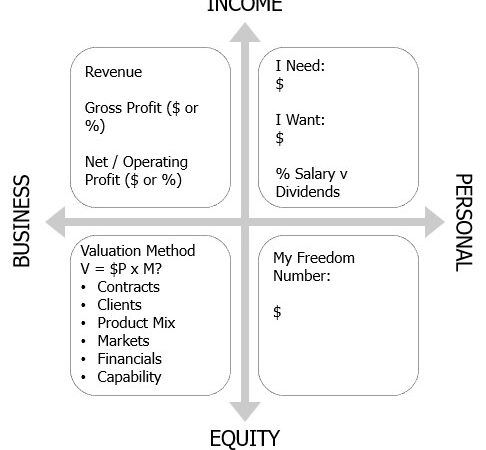How to Empower Your Team Part 2. In Blackboard Fridays Episode 22, Jacob talks about Leadership, Productivity, Culture, and Learning and Development. Need this implemented into your business? Talk to the international business advisor who can do exactly that – Contact Jacob, Learn More, or Subscribe for Updates.
In our last episode, How to Empower Your Team Part 1, we did an overview of Autonomy, Mastery, and Purpose as 3 key drivers for employee motivation, and we discussed 6 conflicting desires that humans have which can challenge your desire to implement a more motivating workplace.
Because you need more than inspiration – you need specific, practical steps for improving your business and empowering your team. In this episode of #BlackboardFridays, we provide a checklist of steps for you to review in your business.
Are you doing what needs to be done to help your team feel:
- Belonging?
- Individuality?
- Stability?
- Risk?
- Present?
- Future?
Empowered individuals and a more successful business awaits.
Who is Jacob Aldridge, Business Coach?
“The smart and quirky advisor who gets sh!t done in business.”
Since April 2006, I’ve been an international business advisor providing bespoke solutions for privately-owned businesses with 12-96 employees.
At this stage you have proven your business model, but you’re struggling to turn aspirations into day-to-day reality. You are still responsible for all 28 areas of your business, but you don’t have the time or budget to hire 28 different experts.
You need 1 person you can trust who can show you how everything in your business is connected, and which areas to prioritise first.
That’s me.
Learn more here. Or Let’s chat.
Transcript
Last week, we talked through the simple framework the journey from hopeful new employees to empower it and engaged individuals who are helping you to grow your business.
This week, we’re going to go through these elements in a little bit of detail and I would encourage you to do is use that almost as a bit of a checklist within your business –are you implementing those specific elements, if you are fantastic, no doubt you have empowered engaged employees.
If you see some gaps and there’s some opportunities you can work on to help your team step up, and therefore to help you to let go to grow.
So, let’s go through each of them. Autonomy which is that desire that individuals must take and have responsibility for making change. The competing, almost conflicting desires that we have in an autonomy space, around our needs to belong and our desire for individuality independence.
How do we, as employers, make sure that we balance both of those? Well, the key thing around the longing, I talked about in a recent blackboard Friday episode, is things like culture rituals, things that makes your business unique and special o that when your team think about working with you, they think about some of the things that they won’t get anywhere else, they know that they belong and they’re part of something unique. The flipside is them as an individual wanting to feel unique.
The key to that is making sure you and if you have layers of Management, each individual specific manager, takes the time to understand the individual needs and desires of each employee.
A simple example I talked about is how you can reward individuals with things that are specialized to them rather than trying to throw caches the problem. I love movie tickets as an example because I’m an avid movie lover and I have the benefit of working with some team members who are also avid movie lovers.
When I want to reward them, I’d much rather spend $50 on some movie tickets as a gift than $100 in cash on something that isn’t personalized, that doesn’t demonstrate that I valued them as an individual. No matter how big your business, you have the structure in place to meet each person where they are as an individual.
Mastery is about taking the opportunity to develop new skills to a level of competence that meets that individual’s desire and commitment. The conflicting elements we have in there are around stability of wanting to know we’re doing a great job and continue doing it well and taking risks learning new things. So, how do you build that as a business owner?
Stability requires consistent documented workflows position descriptions across your business. Each person in your business ought to know who the individuals that they work with are and what those people are responsible for.
Key functions things like IT or premises, they should be able to find out very easily who they need to talk to, who has responsibility and can help them in those areas. That gives them a stable platform for doing their day-to-day job and for knowing that the others around them all pulling together as a team.
Risk is where we come in to training and development working. With individuals on what specific skills they want to learn and sometimes giving them the nudge that they need to move them out of their comfort zone.
The thing with being out of your comfort zone is it’s uncomfortable out there. That’s a good thing. So, what you as a great leader need to do in your business is not just encourage that discomfort, but also support failures.
If your team are not failing at things, they’re not pushing themselves strongly enough. If they’re not trying new things and failing from time to time, then it’s because they don’t feel that they’ve got your support to do that. When you support failures, you support your team to take more risks, and if it is in that risk-taking that businesses grow and succeed because if your team aren’t taking risks, your competitive team certainly are.
The third element is purpose, that sense that this is more than just a job. This is part of a bigger picture and I’m contributing to the world. The conflicting elements there are the presence does my work today make a difference and the future. Are we actually building something as an individual and as an overall team that’s going to make a difference in the future?
Supporting your team in the present moment is about making sure that their contributions clearly contribute to the overall purpose of your video. Go back and watch one of the earliest blackboard Friday videos where I talked about the five why’s—the impact of vision on all the elements that sit underneath it.
Get that clear and your team will link purpose to their day-to-day contribution and make sure you acknowledge and recognize their day-to-day contributions in public, in front of other team members. Don’t just tell them about the great things behind the doors, make sure that the rest of the team to see that support.
Then the future is around building a breeding ground for great employees. It’s not just the future of your business you need to be thinking about there, it’s not even just the future of your industry.
What’s the future of each individual team member that you are building? What you want to create is a training ground that means your team members are good enough to go and work anywhere they want, combined with a culture that means the only place that they want to work is right here.
Part of that is celebrating people when they do leave, when they do go on to bigger and better opportunities, or even just more personalized opportunities that they feel they need to pursue. A lot of people ask me why we should spend money or time celebrating people who are leaving the business. It’s because it’s not actually about them leaving the business.
You celebrate the leavers to benefit the people who are still here, who see that you do value and respect everyone in your team even when they’re leaving because that makes the people who stay know that they feel valued and know that their personal desires, whatever they may be, are supported by the business.
You don’t want to empower your team and then cripple them to feel that they have no other choice but to work with you. You want to go through the process make sure they feel they belong somewhere special and where they can reflect their individuality that will give them the autonomy that they need.
Give them the stability to do their job well and the opportunity to take risk, learn new things, and fail from time to time that way they can master their current skills and their new skills and then give them a sense of purpose that’s linked to what they’re doing right now while you’re watching this video and what they’re building for the future—their future and your future.
If you do all those things, you will have awesome employees and if you’ve got awesome employees there is nothing your vision that you can’t achieve.
Next Steps
Want to learn more about how this can apply to your business? It costs nothing to chat:
- Email me jacob@jacobaldridge.com (I read them all)
- Call, Text, or WhatsApp me +61 427 151 181
- Or just Subscribe https://jacobaldridge.com/about/subscribe-to-jacob-aldridge-com/ to stay in touch





[…] Episode 22, How to Empower Your Team Part 2 – https://jacobaldridge.com/business/how-to-empower-your-team-part-2/ […]
[…] Almost exactly a year ago, we ran two of our most loved episodes on “How to Empower Your Team to Step Up” – and you can watch Parts One and Two. […]
[…] Undoubtedly, my favourite Blackboard Friday episodes are the two we created on Empowering Your Team (episodes 21 and 22). […]